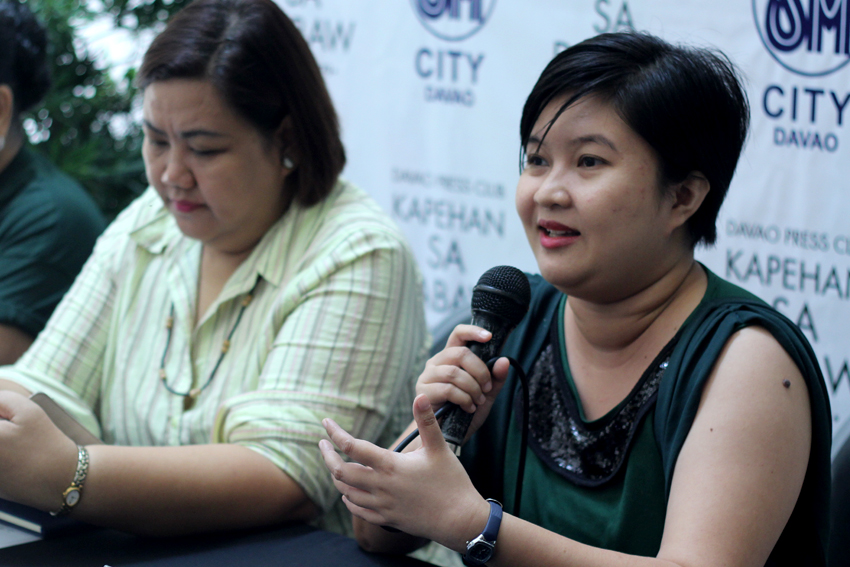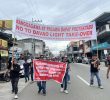
Julia Jasmine Sta Romana, a campaigner from Dakila, talks about internet rights during Monday’s Kapehan sa Davao. (Ace R. Morandante/davaotoday.com)
DAVAO CITY — The use of the internet with a stable and fast connection at an accessible price is significant for voters this coming election, says a group campaigning for internet rights.
Julia Jasmine Sta. Romana, campaigner for Internet Rights of Dakila, said that internet connectivity during the election period is an issue because it “allows people especially in Visayas and Mindanao area to be more vocal and to be more active.”
Sta. Romana cited the first presidential debate held in Cagayan de Oro City which showed that internet users from Visayas and Mindanao are the most engaged and most active netizens.
“If there is faster internet, the Visayas and Mindanao provinces would have a stronger voice because we would be able to put our opinions, our concerns, out there because population, yes Luzon is big but so as Visayas and Mindanao,” Sta. Romana said.
On Monday, March 7, Dakila launched a campaign for the awareness of Dabawenyos on their internet rights during the Kapehan sa Dabaw media conference.
Sta. Romana lamented that the country’s slow yet one of the most expensive internets in the world hinders the public to use internet as a platform to educate and to build awareness.
“We are one of the slowest in internet speed, Myanmar is faster than us, and we are one of the most expensive internet all over the world,” she said.
Last year, broadband testing company Ookla ranked the Philippines as the second country in Asia with the slowest internet speed with an average download speed of 3.64 megabit per second (mbps). The average broadband speed worldwide is 23.3 mbps.
The country is also one of the most expensive internet with an average cost of $18.19 per mbps. This exceeded the average global cost of $5.21 per mbps.
“We have internet rights and we have to exercise that one since we have a rising industry here in Davao City,” Sta. Romana said.
Sta. Romana added that here in Davao, telecommunication companies are rapidly increasing even online business like online shops, online check-ups to doctors are present in this city.
In 2014, the Department of Science and Technology – Information and Communications Technology Office and the Information Technology and Business Process Association of the Philippines (IBPAP) selected Davao City as one of the Philippines’ Next Wave Cities, which includes cities potential to be key players for business process outsource industry.
In 2015, Davao got the 66th spot in the top 100 outsourcing destinations in the world, according to Tholons. (davaotoday.com)








